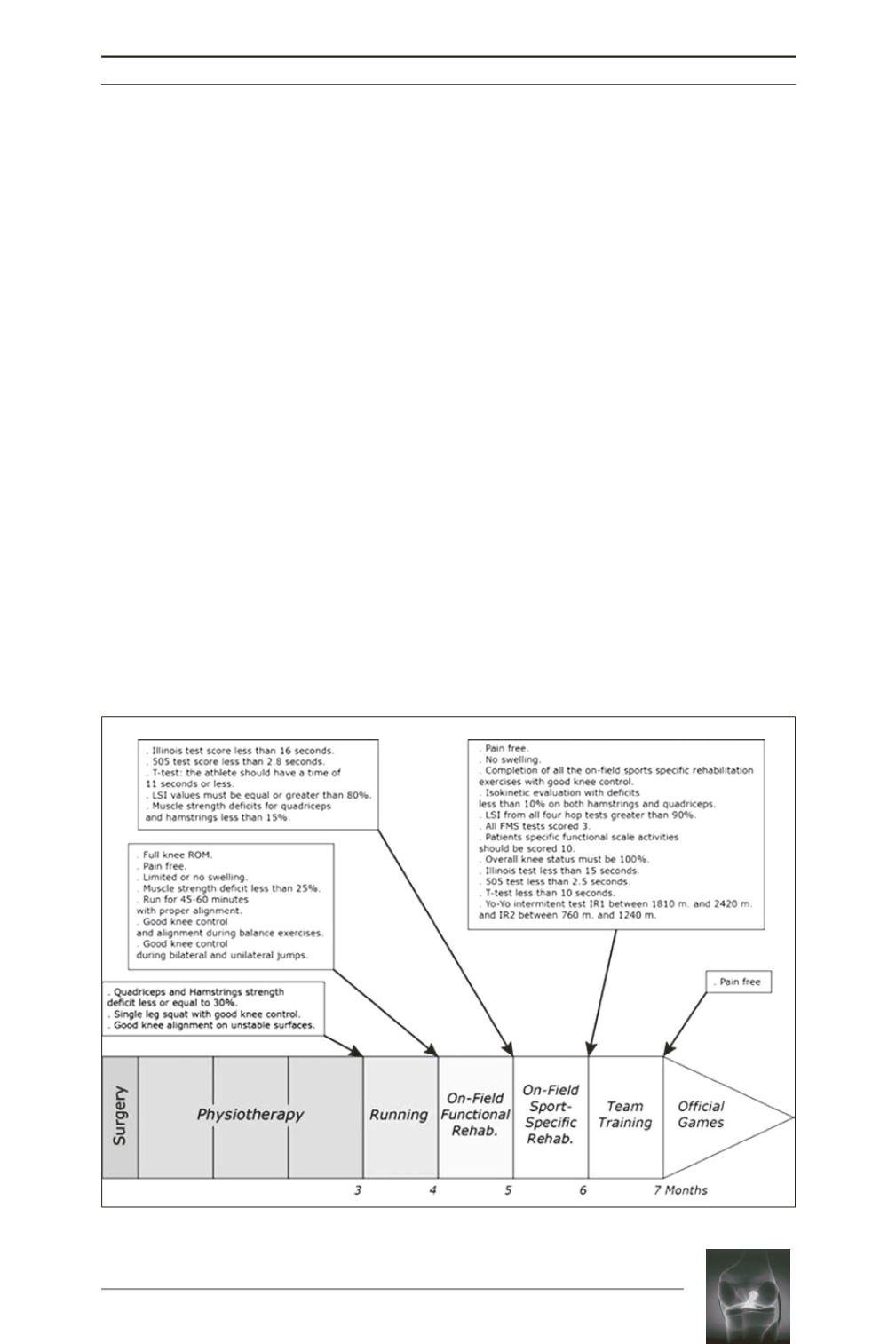

RETURN TO PLAY AFTER ACL RUPTURE
223
assess the properties of human ACL graft.
However, the animal studies should lead to at
least some prudence during the intermediate
phase between physiotherapy and return to
play (4 to 6 months).
Strength and neuromuscular control
Many guidelines have been proposed regarding
the criteria that the patient must meet before to
return safely to play but there is currently no
evidence to support one protocol or another
one (fig. 1).
For that reason, at Aspetar, we have conducted
a study to evaluate whether strength or
functional tests, which are frequently used as
return to sport criteria, are risk factors for an
ACL graft rupture in a group of male
professional athletes [6]. 158 male professional
athletes who underwent an ACL reconstruction
and returned to their previous professional
level of sport were included. Before players
returned to sport, they underwent a battery of
discharge tests (isokinetic strength testing at
60°, 180° and 300°/s, a running T test, single
hop, triple hop and triple crossover hop tests).
Athletes were monitored for ACL re-ruptures
once they returned to sport (median follow-up
646 days, range 1-2060). Out of the
158 athletes, 26 (16.5%) sustained an ACL
graft rupture with an average of 105 days after
return to sport. Two factors were associated
with increased risk of ACL graft rupture:
1)
not meeting all six of the discharge criteria
before returning to team training; and
2)
decreased hamstring to quadriceps ratio of
the involved leg at 60°/s.
We concluded that athletes who did not meet
the discharge criteria before returning to
professional sport had four times greater risk
on sustaining an ACL graft rupture compared
with those who met all six RTS criteria. In
addition, hamstring to quadriceps strength ratio
deficits were associated with an increased risk
of an ACL graft rupture.
Fig. 1:
Return to sport after ACL recontruction. Aspetar guidelines.
(E. Witvrouw, P. Kyritsis, P. Landreau).











